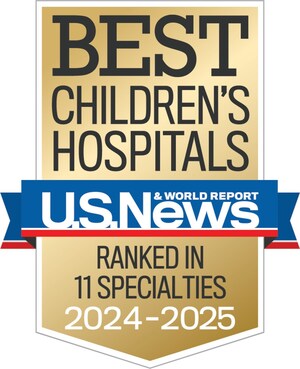Doctor Advises Adults on How to Talk With Children About Disasters
CINCINNATI, Jan. 21 /PRNewswire-USNewswire/ -- The earthquake that hit Haiti on Jan. 12 has evoked emotions of sadness, grief and helplessness in many around the world.
While adults may know how to express these feelings, often they do not know how to talk with children about the way the children are feeling.
David Schonfeld, M.D., Director, Division of Developmental and Behavioral Pediatrics at Cincinnati Children's Hospital Medical Center and Director, National Center for School Crisis and Bereavement, gives parents the following tips on how to speak with their children after disasters have occurred.
- Talk about the event with your child. Not talking about it makes the event even more threatening in your child's mind. Silence suggests that what has occurred is too horrible to even speak of. Chances are he has already heard about it.
- Start by asking what your child has already heard about the events and what understanding he has reached. As your child explains, listen for misinformation, misconceptions and underlying fears or concerns.
- When children ask if it is possible that an earthquake could occur that would impact their family, they are likely really asking whether it is "likely" – when appropriate, reassure them the risk of an earthquake in your community is quite low.
- Encourage your child to ask questions, and answer those questions directly. Like adults, children are better able to cope with a crisis if they feel they understand it. Question-and-answer exchanges help ensure ongoing support as your child begins to understand the crisis and the response to it.
- Limit your child's media exposure to images and sounds related to the disaster. Remember they often overhear or see what you are watching on TV or listening to on the radio.
- Work with your child to figure out a way that the child can help the people who were affected by the disaster. Children may also find benefit in helping others in need in their own community.
- Consider sharing your feelings about the event or crisis with your child. This is an opportunity for you to role model how to cope and how to plan for the future. Before you reach out, however, be sure you are able to express a positive or hopeful plan.
- If you have concerns about your child's behavior, contact her pediatrician, other primary care provider, or a qualified mental health care specialist.
For more information on how to help your children cope with disasters, please visit the website for the National Center for School Crisis and Bereavement at www.cincinnatichildrens.org/school-crisis (which includes a helpful booklet on how to talk with children who are grieving) or visit the American Academy of Pediatrics website at www.aap.org/disasters/adjustment.cfm. You can also view Dr. Schonfeld talking about these tips at http://www.youtube.com/watch?v=rK5VC8e6jqE.
About Cincinnati Children's
Cincinnati Children's Hospital Medical Center is one of 10 children's hospitals in the United States to make the Honor Roll in U.S. News and World Reports 2009-10 America's Best Children's Hospitals issue. It is #1 ranked for digestive disorders and is also highly ranked for its expertise in respiratory diseases, cancer, neonatal care, heart care, neurosurgery, diabetes, orthopedics, kidney disorders and urology. One of the three largest children's hospitals in the U.S., Cincinnati Children's is affiliated with the University of Cincinnati College of Medicine and is one of the top two recipients of pediatric research grants from the National Institutes of Health.
President Barack Obama in June 2009 cited Cincinnati Children's as an island of excellence in health care. For its achievements in transforming health care, Cincinnati Children's is one of six U.S. hospitals since 2002 to be awarded the American Hospital Association-McKesson Quest for Quality Prize for leadership and innovation in quality, safety and commitment to patient care. The hospital is a national and international referral center for complex cases. Additional information can be found at www.cincinnatichildrens.org.
SOURCE Cincinnati Children's Hospital Medical Center
WANT YOUR COMPANY'S NEWS FEATURED ON PRNEWSWIRE.COM?
Newsrooms &
Influencers
Digital Media
Outlets
Journalists
Opted In





Share this article